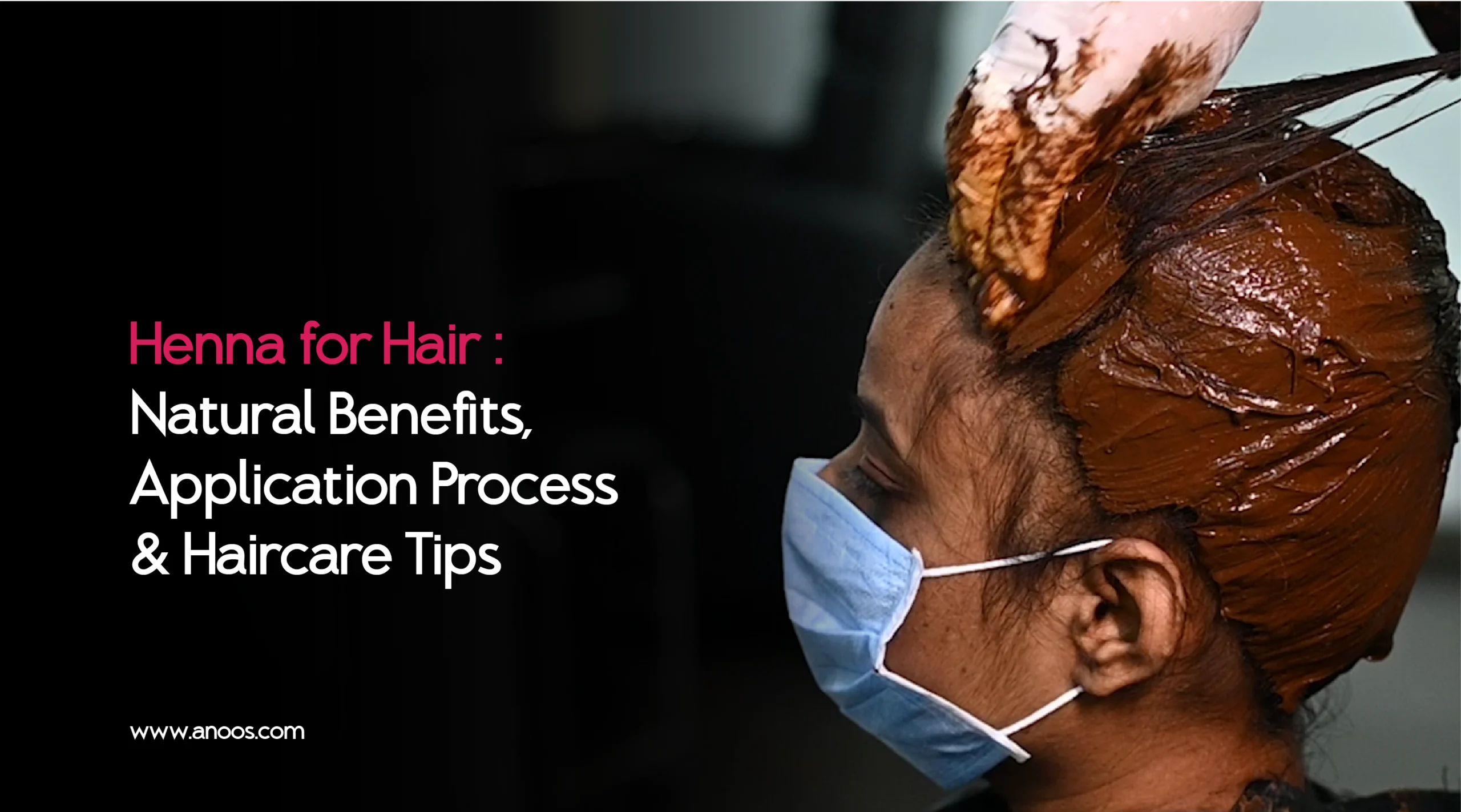
Benefits of Henna, Application Process & Haircare Tips
Looking for a natural way to dye your hair, improve your texture and promote healthy growth? Henna for hair has been a time -tested treatment, used for nourishing and charming hair for centuries without hormones.
In this blog, you will learn about the benefits of henna for hair, how to use it (including the trendy beetroot method for deep dye), important precautions and answers to often asked questions.
What is Henna?
Henna (Lawsonia Iners) is a plant -based powder made from dried henna leaves. Known for its natural dye and conditioning properties, it is a popular choice for those who want to avoid synthetic hair dyes and chemicals. In addition to being a natural hair dye, henna also has antibacterial, antifungal and cooling effects that benefit the scalp.
Top Benefits of Henna for Hair
✅ 1. Natural and Safe Hair Dye
Henna provides a beautiful red-brown color to hair without ammonia, peroxide or strong chemicals. It safely improves your natural tone and covers gray.
✅ 2. Boosts Hair Growth
Henna stimulates the scalp and improves blood circulation, which leads to stronger roots and healthy hair growth over time.
✅ 3. Reduces Dandruff & Itchiness
Because of its antifungal and anti-inflammatory properties, it calms the scalp’s rashes and keeps dandruff in control.
✅ 4. Conditions and Strengthens
Henna creates a protective layer around each hair, reducing breakage, split ends, and frizz – leaving the hair soft, shiny and manageable.
✅ 5. Balances Oily Scalp
Henna regulates excess sebum production and detoxifies the scalp, making it ideal for those with oily or acne-prone scalp issues
Pro tip: If you are looking for a clean, chemical-free method to color and condition your hair, henna is the all-in-one solution to your routine needs.
How to use Henna for hair
Ingredients Needed:
- 100% pure henna powder
- Warm water or brewed green tea or tea decortion
- 1 medium-sized beetroot
- Optional: You can use lemon juice, yogurt, aloe vera gel or essential oils.
Step-by-Step Process:
1. Prepare Beetroot Juice
Chop and boil the beetroot in water. Let it cool and strain to get the juice.
2. Make the Henna Paste
In a bowl, combine the henna powder with beetroot juice and luke warm water (or green tea) to make a smooth, free paste.
3. Let it Rest
Cover the mixture and leave it for 6-8 hours or overnight to emit natural dyes.
4. Apply the Henna
Wear gloves and divide your hair into sections. Apply the paste from roots to hair ends. Ensure that it is evenly applied.
5. Cover & Wait
Cover your hair with a bath hood and leave it for 2-3 hours. The longer you keep it, the color will be thick.
6. Rinse Off
Wash your hair with normal water. Avoid shampooing for 24-48 hours to allow the color to evolve completely.
Why Beetroot?
Beetroot gives henna a rich burgundy or dark red color, enhances brightness and nourishes the scalp with vitamins and antioxidants.
Precautions Before Using Henna
- Always Do a Patch Test: Especially if you have sensitive skin or known allergies.
- Use Pure Henna Only: Avoid black hina or products with chemical additives such as PPD, which may cause allergic reactions.
- Don’t Overuse: Applying henna every month is great, but using it every week can be excessive. Unless you’re in a really dry climate, you might want to give your hair a break. Your hair also needs rest. Conditionally, avoid overapplying.
Frequently Asked Questions
Q1. Will henna cover grey hair naturally?
Yes, henna covers grey hair with orange-red shades. If you want black shade combine henna with indigo powder.
Q2. Can henna help with hair growth?
Absolutely! Henna enhances circulation of the scalp, unclogs follicles and strengthens the growth of hair.
Q3. How often can I apply henna?
The right frequency for coloring is every 4 to 6 weeks. For conditioning, once a month is sufficient.
Q4. Does henna work on chemically treated hair?
Yes, but wait 6 to 8 weeks for chemical treatments. Always take the test on the strand first.
Q5. What are the benefits of mixing beetroot with henna?
Beetroot enhances the red shade, adds natural brightness and nourishes the scalp with antioxidants.
Final Thoughts
The dye is not just a natural dye – it is a complete hair care solution. With regular use, you can enjoy non -chemical coloring, strong strands, a healthy scalp and beautiful hair. For those women who are looking for dense and rich shades, try beetroot juice with henna for an amazing results.
Whether you want to embrace your natural beauty or change hair care to safer, the benefits of henna for hair are simply too good to ignore.

